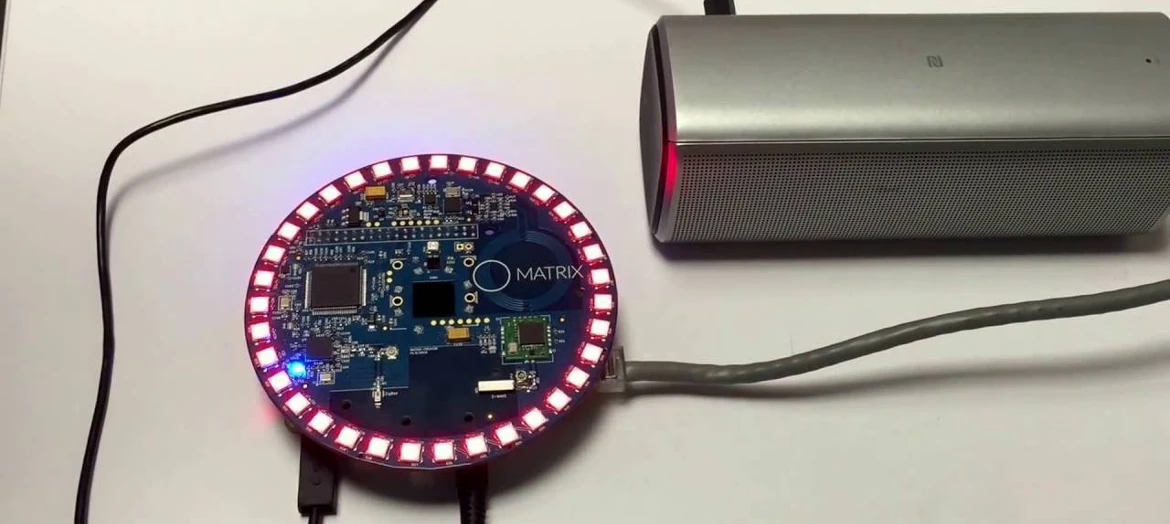Holding basic conversations with smartphones and wireless speakers is now fairly commonplace, but tinkerers and makers who want to create their own communicative objects can feel a little restricted by what Amazon, Apple and Google allow them to do. Matrix Labs has come to the rescue with a Raspberry Pi-compatible Internet-of-Things development board with built-in microphones that can bring custom voice recognition smarts to any maker project. And following a successful crowdfunding effort on Indiegogo last year, the Matrix Voice is now on general release.
The Matrix Voice dev board sports seven MEMS microphones connected to a Xilinx Spartan6 FPGA (field-programmable gate array) and 64 MB of SDRAM. It also has 64 GPIO expansion pins (including 40 for connection to a Raspberry Pi) and 18 Everloop LEDs. It's 3.14 inches in diameter (that's Pi to two decimal places of course) and has far-field voice capture, beamforming, acoustic source isolation, noise suppression, de-reverberation and acoustic echo cancellation among its feature set, too.

The code for enabling voice recognition smarts on the Voice board can be custom-created in JavaScript via the Matrix OS, or pre-built apps are available from the company's App Store. Other coding languages are to be added to the toolset at a later date.
"Our Matrix ecosystem provides both DIY and enterprise developers with the hardware, software, and marketplace to bring to life whatever exists in the imagination, and then publish it for public consumption," said the company's Rodolfo Saccoman. "No longer is IoT app development reserved for those with months of time, millions of dollars, and years of education – today, with our Matrix ecosystem, IoT app development and product creation is now just as simple and affordable for both institutions and individuals as building a website with platforms like Squarespace or Wordpress."
Matrix Labs has also introduced a stand-alone Wi-Fi/Bluetooth version of the Voice with a 32-bit microcontroller that's ready for industrial IoT applications.
The standard Voice is available now for US$55, while the wireless-enabled version comes in at $65.
Source: Matrix Labs





